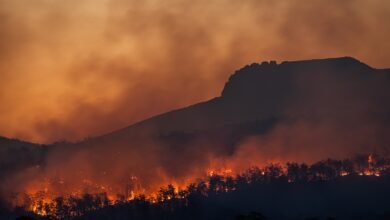
Climate Change: Urgency for Action
Climate change is a critical issue facing the world today. It is caused by the increase of greenhouse gas emissions, primarily carbon dioxide, in the earth’s atmosphere. The effects of climate change have been felt across the globe, including rising sea levels, increased frequency and intensity of hurricanes and other extreme weather events, and changes in precipitation patterns. In order to mitigate the harmful effects of climate change, urgent action is needed on a global scale.
The Science Behind Climate Change
Climate change is caused by the accumulation of greenhouse gases in the earth’s atmosphere, primarily carbon dioxide. These gases trap heat from the sun, causing the planet’s temperature to rise. The increase in temperature leads to a variety of environmental changes, including rising sea levels, melting glaciers, and changes in precipitation patterns. Scientists have observed that these changes are happening at an increasingly rapid rate and that humans are responsible for the majority of this change.
The Effects of Climate Change
The effects of climate change are widespread and have the potential to impact every aspect of our lives. Some of the most significant effects include the following:
Rising Sea Levels
As the planet warms, the polar ice caps begin to melt, causing sea levels to rise. This rise in sea level can lead to flooding in low-lying areas and damage to coastal ecosystems.
Extreme Weather Events
Climate change is causing an increase in the frequency and intensity of extreme weather events, such as hurricanes, floods, and droughts. These events can cause significant damage to infrastructure, homes, and businesses.
Changes in Precipitation Patterns
Climate change can also lead to changes in precipitation patterns, causing droughts in some areas and heavy rainfall in others. These changes can cause food and water shortages and can impact agriculture and other industries.
Urgent Action Needed
In order to mitigate the harmful effects of climate change, urgent action is needed on a global scale. Governments, businesses, and individuals all have a role to play in reducing greenhouse gas emissions and adapting to the changing climate. Some of the key actions that can be taken include the following:
Reducing Greenhouse Gas Emissions
Reducing greenhouse gas emissions is key to slowing the rate of climate change. This can be done through a variety of means, including transitioning to renewable energy sources, improving energy efficiency, and reducing emissions from transportation.
Adapting to the Changing Climate
In addition to reducing greenhouse gas emissions, it is also important to adapt to the changing climate. This can include measures such as building sea walls to protect against rising sea levels, developing drought-resistant crops, and improving building codes to withstand extreme weather events.
Individual Action
Individuals can also take action to reduce their carbon footprint and mitigate the effects of climate change. This can include actions such as reducing energy use, eating a more plant-based diet, and reducing waste.
FAQs
What caused climate change?
Climate change is primarily caused by the increase of greenhouse gas emissions, primarily carbon dioxide, in the earth’s atmosphere. Humans are responsible for the majority of this increase through activities such as burning fossil fuels and deforestation.
What are the effects of climate change?
The effects of climate change include rising sea levels, increased frequency and intensity of extreme weather events, and changes in precipitation patterns. These changes can impact a variety of industries and ecosystems, including agriculture, infrastructure, and coastal ecosystems.
What can be done to mitigate the effects of climate change?
Mitigating the effects of climate change requires urgent action on a global scale. This can include reducing greenhouse gas emissions through transitioning to renewable energy sources and improving energy efficiency, adapting to the changing climate through measures such as building sea walls and developing drought-resistant crops, and individual actions such as reducing energy use and eating a more plant-based diet.
What is the role of governments and businesses in mitigating the effects of climate change?
Governments and businesses have a critical role to play in mitigating the effects of climate change. Governments can implement policies to incentivize the reduction of greenhouse gas emissions and adapt to the changing climate, while businesses can transition to renewable energy sources and improve energy efficiency.
[ad_2]




